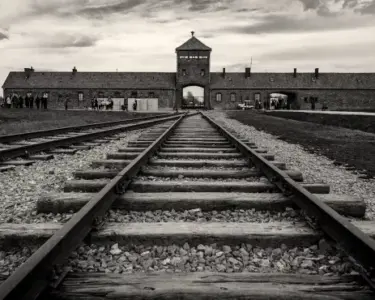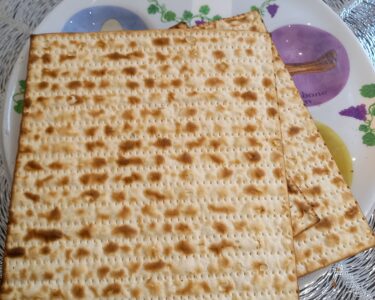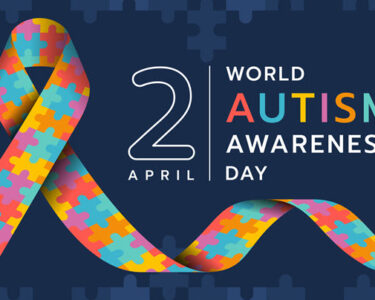A guest blog by Dominic Townsend & Lisa Grześkowiak
“My father spoke with his hands. He was deaf. His voice was in his hands. And his hands contained his memories.” (Myron Uhlberg)
‘Hello and welcome to our blog on delivering a curriculum to Deaf / deaf pupils in a mainstream secondary school.
The staff of Nottingham University Samworth Academy (NUSA) and the incredible team of the Focused Provision Unit (Deaf Base) strive each and every day to ensure that everyone has a voice, that the barriers of the past have been overcome and that the future of every pupil is brighter than ever before.
Being D/deaf, whether born deaf or through an event in your life, can leave you facing many challenges in a hearing world. People often assume that a hearing aid or cochlear implant means that a D/deaf pupil can access the same level of sounds as a pupil with hearing. This is not the case. For our D/deaf pupils and those across the country, they face many barriers daily, whether that be understanding the meaning of words, being able to track the dialogue of teachers or simply having cultural capital of specific current events or those of the past. These barriers mean that a D/deaf pupil must work twice as hard and think twice as hard compared to their hearing peers. This is why the Focused Provision Unit at our amazing NUSA are such incredible people who teach our D/deaf pupils the skills they need to overcome those barriers and are enablers of success.
Our Focused Provision Team work tirelessly day in and day out in supporting our pupils. Consisting of three Teachers of the Deaf, Lisa, Helen and Steph along with their incredible support cast of; Yvonne, Sally, Beverley, Kelli and Amy (who all deserve to be named), the FPU make a real difference to the lives of the pupils they support. The FPU not only seeks to enable our D/deaf pupils to access the curriculum but strives to create independent and resilient adults of the future. Working in collaboration between my Humanities Department and the FPU team, a ‘Ladder to Independence’ was created, with tiered levels of support for our D/deaf pupils which over time are reduced. This strategy has been successful in building self-confidence and resilience for our D/deaf pupils and has led to greater levels of academic independence and improvement as they move away from the blanket of support that previously covered them.
From the perspective of a Lead Teacher of a Beacon School (2021-22) there are a number of challenges I face in creating a Holocaust curriculum which is accessible for all, including D/deaf pupils. I started by initially creating a new unit of work which looks specifically at how deafness and disability has been viewed throughout history. Not only does this unit serve as a precursor to the Holocaust unit by giving all NUSA pupils an understanding of how views around deafness and disability have changed over time, but it was also an opportunity to include authentic resources including the use of episodes from BSL Zone. For those that may not be aware, BSL Zone is a Deaf television programme made in British Sign Language made by Deaf people for Deaf people.
From there, Lisa (the Lead Teacher of the Deaf) and I sat down and looked through my scheme of work and picked out over 20 words linked to the Holocaust which do not have a British Sign Language representation. As a result, our D/deaf pupils struggle to access the learning and to understand the meaning behind these particular words. Therefore, as a school we are striving to create a glossary of BSL signs which will enable the D/deaf pupils to engage with the learning in a way that is more accessible to them. In addition to this, those pupils also struggle with the vast and complex topic areas which form the Holocaust scheme of learning. As a result, it is critical that the FPU team and I continue to work closely together to simplify those complex discussions and to create suitable foundations of knowledge for pupils to build on. However, this alone is not a simple task, as our D/deaf pupils move from subject to subject each day, facing the same barriers to learning.
My hopes for the future are that in collaboration with the FPU team, we can create a truly outstanding Holocaust education and curriculum at NUSA. Not only that, but a curriculum which gives all pupils, both D/deaf and hearing, the skills to break down their individual barriers and become members of society with the desire to change the world. In the words of the late Leon Greenman, MBE, ensure that “never again” will this world see another Holocaust.
Thank you to everyone out there who makes a difference to the lives of D/deaf people in the world.’
Dominic Townsend is a Humanities Teacher, and Beacon School Lead Teacher, whilst Lisa Grześkowiak is Lead Qualified Teacher of the Deaf, Focused Provision for the Deaf, at Nottingham University Samworth Academy (NUSA)
Learn more: https://www.nusa.org.uk/
@OfficialNUSA
@FPUatNUSA



